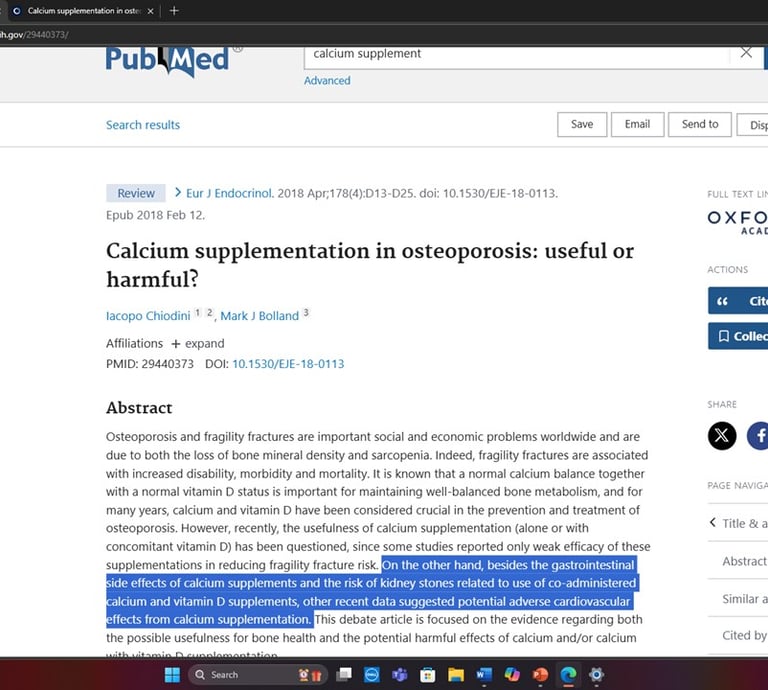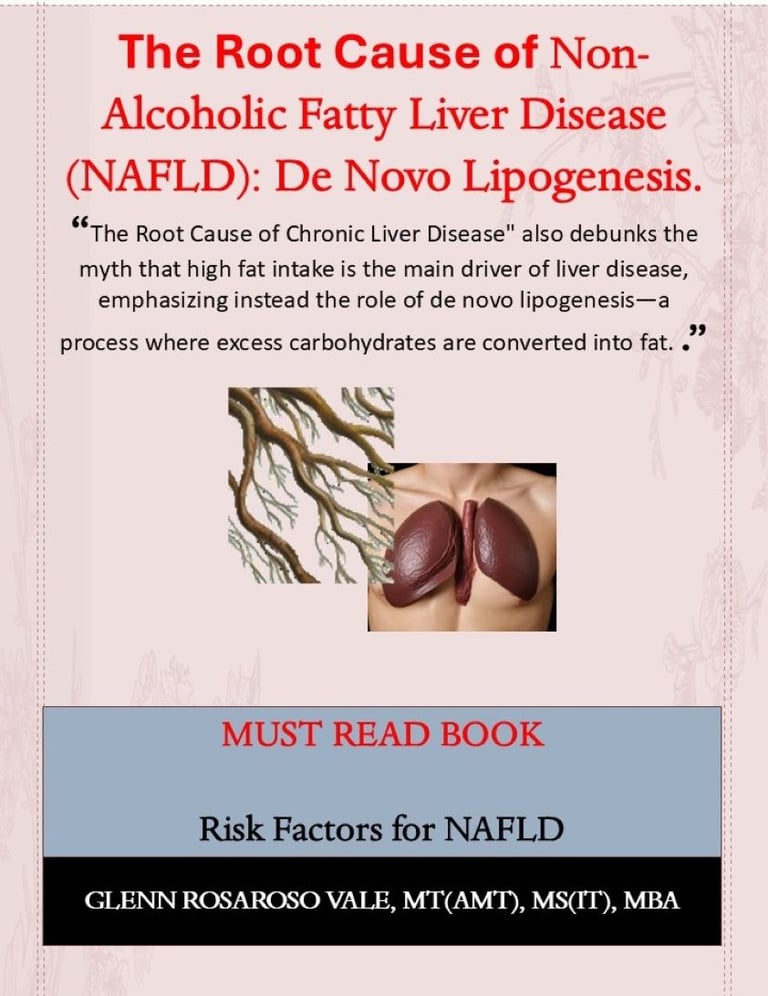"Uncover the truth behind the groundbreaking discovery of the causes of the world's biggest problems. 'The Root Causes' will change how you view the world!"
The Role of Calcium in Osteoporosis: Evaluating Benefits and Risks
Osteoporosis is a significant global health concern, affecting millions of individuals and leading to an increased risk of fragility fractures, which contribute to higher disability, morbidity, and mortality rates (Chiodini & Bolland, 2018). Bone health is largely influenced by calcium and vitamin D, and for years, supplementation of both has been widely recommended for the prevention and treatment of osteoporosis. However, recent research has sparked a debate about the effectiveness and safety of calcium supplements, with some studies raising questions about their benefits and potential harm. The Role of Calcium and Vitamin D in Bone Health Calcium plays a crucial role in bone metabolism, contributing to bone mineral density (BMD) and the overall structural integrity of bones. Similarly, vitamin D is vital for calcium absorption and maintaining optimal calcium balance in the body. Historically, calcium and vitamin D supplementation has been regarded as a cornerstone of osteoporosis management, helping to reduce the risk of fractures and improve bone strength (Chiodini & Bolland, 2018).
NUTRITIONSUPPLEMENTS
Glenn Rosaroso Vale, BSMT, MS(IT), MBA
12/3/20243 min read


Osteoporosis is a significant global health concern, affecting millions of individuals and leading to an increased risk of fragility fractures, which contribute to higher disability, morbidity, and mortality rates (Chiodini & Bolland, 2018). Bone health is largely influenced by calcium and vitamin D, and for years, supplementation of both has been widely recommended for the prevention and treatment of osteoporosis. However, recent research has sparked a debate about the effectiveness and safety of calcium supplements, with some studies raising questions about their benefits and potential harm.
The Role of Calcium and Vitamin D in Bone Health
Calcium plays a crucial role in bone metabolism, contributing to bone mineral density (BMD) and the overall structural integrity of bones. Similarly, vitamin D is vital for calcium absorption and maintaining optimal calcium balance in the body. Historically, calcium and vitamin D supplementation has been regarded as a cornerstone of osteoporosis management, helping to reduce the risk of fractures and improve bone strength (Chiodini & Bolland, 2018).
Efficacy of Calcium Supplementation
Despite its widespread use, recent evidence suggests that the benefits of calcium supplementation in preventing fractures might be weaker than previously thought. Several studies have reported minimal or no reduction in fracture risk with calcium supplementation alone or when combined with vitamin D. These findings have led some researchers to question whether calcium supplementation should be prioritized in osteoporosis treatment protocols (Chiodini & Bolland, 2018).
Potential Adverse Effects of Calcium Supplementation
Beyond its questionable efficacy, calcium supplementation has been linked to a range of potential adverse effects, particularly when taken in high doses. One concern is the gastrointestinal side effects, such as bloating, constipation, and discomfort. Furthermore, there is an increased risk of kidney stones with the use of high-dose calcium, which can lead to additional health complications. Perhaps more concerning is the emerging evidence of cardiovascular risks associated with calcium supplementation. Studies have suggested that calcium supplements, particularly when taken without food, may increase the risk of cardiovascular events, such as heart attacks and strokes, although the exact mechanism remains unclear (Chiodini & Bolland, 2018).
The Debate: Is Calcium Supplementation Worth the Risk?
The debate surrounding calcium supplementation highlights the need for a more nuanced approach to osteoporosis management. While calcium and vitamin D are undeniably important for bone health, the benefits of supplementation are still unclear, especially in individuals who do not have a calcium deficiency. For people who are already getting enough calcium through their diet, additional supplements may provide little to no benefit and could introduce unnecessary risks.
Some experts argue that focusing on dietary calcium intake from natural sources, such as dairy products, leafy greens, and fortified foods, might be a safer and more effective strategy than relying on supplements (Chiodini & Bolland, 2018). Furthermore, a holistic approach to osteoporosis treatment, including weight-bearing exercise and medication, may offer better outcomes for bone health than calcium supplements alone.
Conclusion
In conclusion, while calcium supplementation has long been advocated for the prevention and treatment of osteoporosis, the current evidence casts doubt on its effectiveness in reducing fracture risk. Moreover, the potential harms associated with calcium supplements—such as gastrointestinal issues, kidney stones, and cardiovascular risks—suggest that a more cautious approach is warranted. Individuals concerned about their bone health should consult their healthcare providers to assess their calcium needs and consider alternatives, such as dietary changes and lifestyle modifications, to optimize bone health without the risks posed by excessive supplementation (Chiodini & Bolland, 2018).
References
Chiodini, I., & Bolland, M. J. (2018). Calcium supplementation in osteoporosis: useful or harmful? European Journal of Endocrinology, 178(4), D13-D25. https://doi.org/10.1530/EJE-18-0113


Health
Understanding illness to empower your well-being journey.
Wellness
Knowledge
info@rootcauseprevention.com
903-268-6664
© 2024. All rights reserved.
grfv@sbcgloal.net

